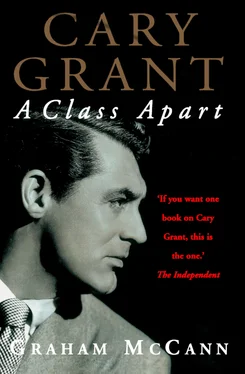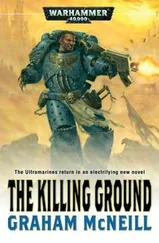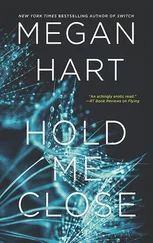The earliest letter from Elsie in Cary Grant’s papers is dated 30 September 1937, sent from Bristol to Hollywood, and it gives one the impression of a much warmer, caring and humorous person than many biographers have described:
MY DEAR SON,
Just a line enclosing a few snaps taken with my own camera. Do you think they are anything like me Archie? I am still a young old mother. My dear son, I have not fixed up home waiting to see you. No man shall take the place of your father. You quite understand. I am desperately longing waiting anxiously every day to hear from you. Do try and come over soon …
Fondest love, your affectionate MOTHER. 39
In her letters and postcards – and Grant saved hundreds in his personal archive – she was usually rather garrulous and good-natured, addressing her son as ‘Archie’ or ‘My Darling Son’ and closing with ‘Kisses’, ‘Fondest Love’ or ‘Your Affectionate Mother’. 40 Grant, in turn, cabled or wrote to her regularly, 41 usually addressing her as ‘Darling’, ending with ‘Love Always’ and ‘God Bless’, and signing his name as ‘Archie’. In one letter, sent in 1966 shortly before the birth of his (and Dyan Cannon’s) daughter, Grant wrote:
Watching, and being with, my wife as she bears her pregnancy and goes towards the miraculous experience of giving birth to our first child, I’m moved to tell you how much I appreciate, and now better understand, all you must have endured to have me. All the fears you probably knew and the joy and, although I didn’t ask you to go through all that, I’m so pleased you did; because in so doing, you gave me life. Thank you, dear mother, I may have written similar words before but, recently, because of Dyan, the thoughts became more poignant and clear. I send you love and gratitude. 42
Phyllis Brooks, who was once engaged to Grant in the late 1930s and who remained a close friend, remembered him being reunited with Elsie: ‘Cary called his mother a dear little woman. But he didn’t talk much about her. I didn’t probe. It was such a traumatic thing to have happen to anybody.’ 43 If the reunion had been an act, prompted by fears of adverse publicity, he seems to have invested an unnecessary amount of time, energy and emotion in maintaining the union during the next thirty-five years. It seems likely that Grant and his mother did , slowly, develop a relationship that was, in the circumstances, relatively stable and mature.
It is probably true that he had found it much easier to feel affection for his father. 44 He had, after all, enjoyed an uninterrupted relationship with him, and, after his mother’s disappearance, he may have come to regard his father, like himself, as a victim of that traumatic episode. 45 His mother, it seemed at the time, had, without any explanation, deserted him, whereas his father had stayed and raised him. When Elias died, his son expressed the belief that his death had been ‘the inevitable result of a slow-breaking heart, brought about by an inability to alter the circumstances of his life’. 46 It would be wrong, however, to accept uncritically the common perception today of Elias as the deferential working-class man and Elsie as the somewhat snobbish woman with grand ambitions, just as it would be wrong to believe that Grant sided consistently and completely with one or the other of his parents. He once said that, when he looked back on the family arguments that dominated his childhood, he felt unable to ‘say who was wrong and right’. 47 Both Elsie and Elias Leach possessed a strong sense of working-class pride: in Elsie, this showed itself in her determination to avoid giving anyone an opportunity to regard her family as ‘common’, as well as in her dreams of financial security and her hopes for her son’s social advancement; in Elias, this pride evidenced itself in more prosaic and pragmatic ways, such as in his advice to his son to buy ‘one good superior suit rather than a number of inferior ones’, so that ‘even when it is threadbare people will know at once it was good’. 48 Elsie craved prosperity whilst Elias would have settled for the appearance of prosperity; Archie respected his mother’s boundless determination, as well as sharing some of her aspirations, and he also sympathised with his father’s gentle stoicism.
Eventually, Cary Grant came to look back on his childhood, and both of his parents, with a generous spirit: ‘I learned that my dear parents, products of their parents, could know no better than they knew, and began to remember them only for the most useful, the best, the nicest of their teachings.’ 49 According to one of his friends – Henry Gris – it was only relatively late in his life that Grant ‘realised the depth of his guilt complex about his mother’s disappearance. He believed he was the subject of his parents’ many bitter quarrels.’ 50 Archie Leach, however, during those traumatic months following the mysterious disappearance of his mother, was unable to come to terms with what had really happened to his family; he could only attempt to adjust to what he thought had happened, and he thought that his mother had deserted him. ‘I thought the moral was – if you depend on love and if you give love you’re stupid, because love will turn around and kick you in the heart.’ 51
CHAPTER III A Place to Be
Regardless of a professed rationalisation that I became an actor in orderto travel, I probably chose my profession because I was seeking approval,adulation, admiration and affection: each a degree of love. Perhaps nochild ever feels the recipient of enough love to satisfy him or her. Oh,how we secretly yearn for it, yet openly defend against it .
CARY GRANT
Our dreams are our real life .
FEDERICO FELLINI
Archie Leach’s adolescence was marked by absence: the absence of his mother, the absence of a stable home life, the absence of money, the absence, it seemed, of a promising future. Not long after his mother’s disappearance, his world was disrupted again: Britain was at war, and material conditions grew even worse for working-class families. His father, it seems, simply withdrew himself from his son’s life. There was no open breach; there was just a vague and gentle separation. They left the house at different times – Elias for work, Archie for school – and they returned at different times. They seldom saw each other. Archie became, in effect, a latch-key child.
In September 1915, at the age of eleven, he won a scholarship to the local Fairfield Grammar School 1 – a gabled, red-brick establishment about ten minutes’ walk from Picton Street. The Liberal government of the time offered ‘free places’ to a limited number of children whose parents could not afford to contribute financially to their education. 2 Archie still had to pay for his books, school uniform and other necessities, however, and, in the absence of his mother, he soon came to suspect that he would probably not be able to get through Fairfield on the little money that his father gave him. As a result, his ‘aspirations for a college education slowly faded’. 3
Elsie Leach’s smart young son was now, according to one of his former classmates, ‘a scruffy little boy’ 4 who was a promising scholar and a good athlete, but who also had a mischievous streak and was often a disruptive influence. ‘It depressed me to be good, according to what I judged was an adult’s conception of good’, Grant recalled, ‘and matters around me were not going well.’ 5 When Cary Grant made his triumphant return to Bristol on a visit in 1933, Archie Leach’s old teachers told reporters of their memories of ‘the naughty little boy who was always making a noise in the back row and would never do his homework’. 6 The irascible piano teacher whom Archie was obliged to visit had taken to rapping the knuckles of his left hand with a ruler (he was naturally left-handed, 7 which caused him to struggle sometimes to play as she instructed). ‘My head seemed stubbornly set against the penetration of academic knowledge,’ 8 although he admitted, grudgingly, that he quite enjoyed studying geography, history, art and chemistry. What he did become was an avid reader of comics, such as The Magnet and The Gem , as well as a popular and eye-catching footballer (playing in goal and experiencing the ‘deep satisfaction’ of being cheered when making a good save – ‘one of those fancy ballet-like flying jobs’ 9 ). It was, in fact, as a result of his increasingly uninhibited sporting exploits that he suffered an accident that would alter his appearance in a subtle way: he snapped off part of a front tooth when he fell over in the school playground; the gap closed up in time, but he was left with only one front-centre tooth. 10 Similar – if less dramatic – mishaps followed. His teachers began to give up on him: ‘I was not turning out to be a model boy.’ 11
Читать дальше












